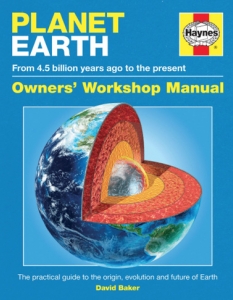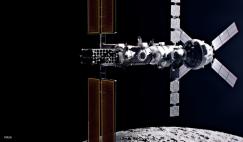There was a time when ownership of a Haynes Owners’ Workshop Manual was confined to careful car owners and eager grease monkeys, but in recent years the series has expanded into the realm of space and beyond. This manual has perhaps the broadest remit in ostensibly covering ‘the origin, evolution and future’ of the planet we live on and, according to its subtitle, its history ‘from 4.5 billion years ago to the present’. And all in a little over 200 pages!
The book is divided into eight chapters covering the Earth’s formation, its geology, oceans and atmosphere and the ‘impact of life on Earth’. One thing the ‘genesis’ chapter does well is place Earth in context with the rest of the solar system, by comparing it with other planets and particularly with the Moon. Later sections on plate tectonics and continental drift will be familiar to those who studied geography at school, but the set of diagrams credited to Greatarsson should help to enhance their understanding of the subject. In fact, the publisher’s picture editor has done an excellent job throughout. The book is well illustrated with colour photos and diagrams and has a useful index.
Is it really an owners’ workshop manual? In a word, no; it’s hard to see how Haynes can justify extending the series into ever more esoteric subjects, but that shouldn’t detract from the quality of its publications. Planet Earth is a book that should prove useful to all students of geomorphology and earth science.
Mark Williamson











